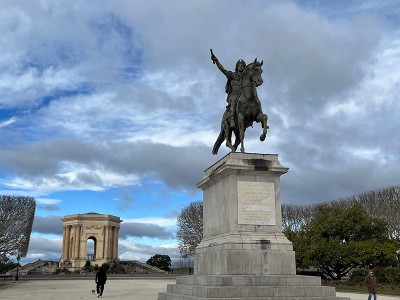
World slowly starts travelling again: UN Tourism Organization
New York/IBNS: After months of lockdowns, countries are cautiously starting to ease travel restrictions put in place to stop the spread of COVID-19, according to research published Monday by the World Tourism Organization (UNWTO). Secretary-General Zurab Pololikashvili, stressed "the need for vigilance, responsibility and international cooperation as the world slowly opens up again."
In the fourth edition of its COVID-19 Travel Restrictions: A Global Review for Tourism, the UN specialized agency reviews measures of 217 destinations worldwide, as of 18 May. The report finds that 3 per cent of all destinations have taken steps to ease restrictions. Seven destinations have eased restrictions for international tourism purposes, while several more are engaged in discussions on the reopening of borders.
Nowhere fully open for tourists, yet
The report notes that 100 per cent of all destinations worldwide continue to have some COVID-19 travel restrictions in place; 75 per cent are still completely closed to international tourism. In 37 per cent of all cases, restrictions have been in place for 10 weeks, while 24 per cent have had controls in place for 14 weeks or more.
The more important tourism is to individual economies, the more likely it is that countries have responded with complete border closures. In the case of Small Island Developing States (SIDS), the report finds that 85 per cent continue to remain completely closed to tourists.“The timely and responsible easing of travel restrictions will help ensure the many social and economic benefits that tourism guarantees will return in a sustainable way”, Mr. Pololikashvili said.
In all UNWTO regions, more than 65 per cent of their destinations remain completely closed to tourism: Africa (74 per cent), the Americas (86 per cent), Asia and the Pacific (67 per cent), Europe (74 per cent) and the Middle East (69 per cent).
Global guidelines
The report follows last week’s release of UNWTO’s Global Guidelines to Restart Tourism, aimed at helping the sector emerge more sustainably from COVID-19. Produced in cooperation with the Global Tourism Crisis Committee, the guidance highlights the need to act decisively, to restore confidence and to embrace innovation.
UNWTO warns that international tourist arrivals could fall between 60 and 80 per cent, depending on when restrictions are lifted. This could place 100 to 120 million jobs at risk and potentially lead to $910 billion to $1.2 trillion lost in exports.
“These guidelines provide both Governments and businesses with a comprehensive set of measures designed to help them open tourism up again in a safe, seamless and responsible manner,” Pololikashvili said.
Support Our Journalism
We cannot do without you.. your contribution supports unbiased journalism
IBNS is not driven by any ism- not wokeism, not racism, not skewed secularism, not hyper right-wing or left liberal ideals, nor by any hardline religious beliefs or hyper nationalism. We want to serve you good old objective news, as they are. We do not judge or preach. We let people decide for themselves. We only try to present factual and well-sourced news.






